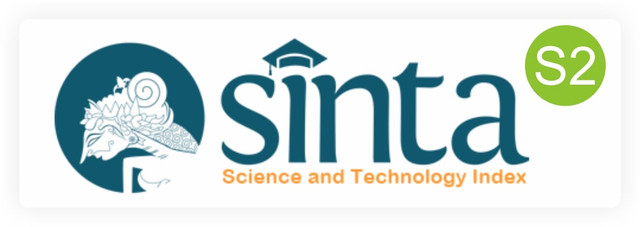PENGARUH PEMBERIAN EKSTRAK ETANOL DAUN KELOR (Moringa oleifera L.) TERHADAP AKTIVITAS ANALGESIK DAN ANTIINFLAMASI MELALUI EKSPRESI ENZIM SIKLOOKSIGENASE
DOI:
https://doi.org/10.12928/pharmaciana.v6i1.3043Keywords:
kelor (Moringa oleifera L.), analgesics, antiinflammatory, edema writhing assayAbstract
Kelor (Moringa oleifera L.) contains flavonoid as a major of bioactive constituent. Quercetin as a flvonoid group inhibits COX-2 in inflammatory process. This study aimed to determine the effect of etanol extract of the kelor leaves on the analgesics and antiiinflamatory in mice. Etanol extract of the kelor leaves were evaluated for analgesics activity through writhing assay test at doses of 12.5; 25 and 50 mg/kgBW using  Swiss albino mice. On the other hand antiinflammatory assay was performed by carrageenan induced paw edema of the etanol extract of the kelor leaves at 35; 70 and 140 mg/kgBW. Aspirin and sodiumdiclofenac were employeed as a standard for analgesic and antiinflammatory studies respectively. The result of the analysis show that etanol extract of the kelor leaves at doses 25 and 50 mg/kgBW decrease the number of writhing so that it have an analgesic power of 76.41±2.73% and 80.41±5.20%. Etanol extract of the kelor leaves at dosage 140 mg/kgBW show 24.30±2.960% antiinflammatory power and 46.37±6.434% on decreased COX-2 expression.
Downloads
Published
Issue
Section
License
Authors who publish with Pharmaciana agree to the following terms:
- Authors retain copyright and grant the journal the right of first publication with the work simultaneously licensed under a Creative Commons Attribution License (CC BY-SA 4.0) that allows others to share the work with an acknowledgment of the work's authorship and initial publication in this journal.
- Authors are able to enter into separate, additional contractual arrangements for the non-exclusive distribution of the journal's published version of the work (e.g., post it to an institutional repository or publish it in a book), with an acknowledgment of its initial publication in this journal.
- Authors are permitted and encouraged to post their work online (e.g., in institutional repositories or on their website) prior to and during the submission process, as it can lead to productive exchanges, as well as earlier and greater citation of published work.


1.png)











